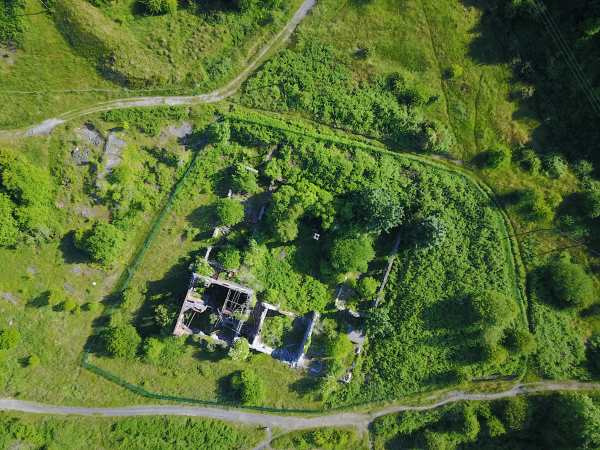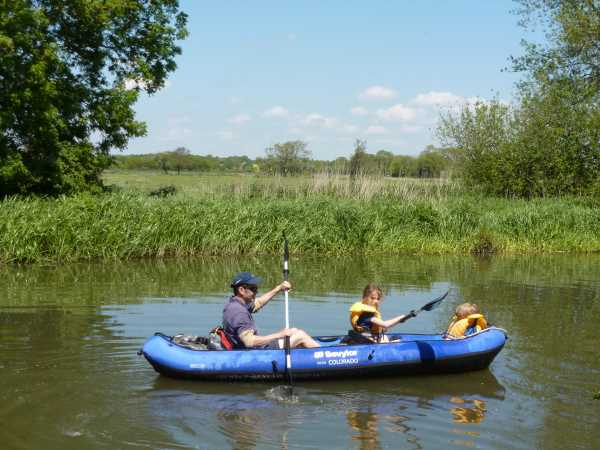Climate and biodiversity emergencies and sustainable tourism
UK domestic tourism has a number of positive impacts. Tourism can play a key role in supporting rural communities through to helping to diversify the local economy, health and wellbeing benefits and along wider regeneration outcomes.
The natural world is a vital tourism asset and ‘attractor’, just as much and sometimes more than the built heritage, local communities and culture, visitor attractions, eateries and supporting infrastructure.
When developing sustainable tourism projects there is a requirement to balance, often conflicting needs. In some instances, there are tensions between the needs of tourism, economic development and the pressure / impact on the environment. There can also be tensions with local host communities, where tourism can place a strain on local resources and there are continuing reports of “over tourism” in the press.
Climate change and the impact of tourism on local communities raises some fundamental questions which tourism businesses and destination management organisations face.
There are some key drivers of change to help create a more environmentally and socially sustainable future for domestic tourism in the UK
The key drivers of change which are presenting a number of opportunities for innovative Destination Management Organisations and businesses within the tourism sector, include:
- Consumer behaviour and increasing interest in environmental issues. During 2019 we witnessed the emergence of a number of climate protests across the UK and the wider world, which in part has been driven by the actions and the growing influence of Greta Thunberg. Research shows that consumers are making active choices linked to the environmental credentials of destinations, accommodation providers and travel organisers. This can help to command a premium price in the market place.
- The legislative environment is also changing with the UK Government committed to achieving a net-zero carbon position by 2050 and in Scotland the target is more ambitious – 2045. This is coupled with legalisation in terms of the air quality, recycling and water.
- Significant investment has been made in technologies such as renewable energy. Improvements to the life and storage of batteries is also likely to have a significant positive impact on transportation and energy production.
- Rising costs associated with air travel is likely to make air travel in the long-term more expensive, most likely leading to increased activity within in the domestic tourism marketplace.
- Consumers are likely to seek their holiday breaks with a stronger focus on their own locality or region, certainly for short breaks if not for main annual holidays.
- The Government Financial Reporting Manual 2019-20 sets out the annual reporting requirements in terms of financial statements. There is now a requirement for some businesses to report the impact of their business on the environment.
What are some of the key opportunities presented by the climate and biodiversity emergencies for tourism in the UK?
The climate emergency (and biodiversity emergency) presents a number of key challenges for destination management organisations and businesses/organisations in the tourism sector, however, emerging from this are a number of opportunities for forward looking tourism businesses, organisations and destination managment organisations.
In the UK destination management organisations and tourism businesses can respond to the climate and biodiversity emergencies in a positive way and in a way which makes financial sense.
The key is developing tourism products and services which meet the drivers of change as set out above. What are we seeing in the marketplace?
- Loganair, Scotland’s Airline, services a number of routes across Scotland and further afield. The airline is working with Cranfield University to reconfigure a Britten-Norman Islander aircraft to enable it to be powered by electricity. The route it is proposed this will be introduced on will be between Westray in the Orkney Islands to Papa Westray (a very short flight). But it helps to demonstration innovative thinking and the start of a new approach
- The National Trust is aiming to become carbon net zero by 2030
- Fogo Island Inn in Newfoundland, Canada has strong community, environmental and economic credentials
We must not forget local communities and the economics behind sustainable development and tourism
When we think of sustainable tourism development we must not just think of the environment in isolation. We also need to consider the ‘sustainability of local communities’ and ‘economic sustainability’ alongside ‘environmental sustainability’. If we only address one or two of these key pillars of sustainability, we are setting ourselves up for failure.
This means we need to include the local community in the planning and tourism development process. This will help to ensure that tourism projects and visitors are managed in a way which benefits local communities and the concerns of local communities are take onboard and addressed during the development process. The importance of ensure communities are involved in the tourism development process is going to become more important post COVID-19.
How can we help?
In respect of developing sustainable tourism projects which respond to key environmental and host community challenges we can help you at an area wide level, for example, preparing Sustainable Destination Management Plans and at a site level preparing Sustainable Visitor Management Plans (and the supporting business plan). We work with a network of specialists from ecologists through to architects and landscape architects.
Clients
We have worked with a range of clients, where sustainable development is at the heart of the project.
- Broads Authority
- Derbyshire County Council
- Forestry England
- Kent County Council
- Lancashire Wildlife Trust
- Natural England
- Natural Resources Wales
- Nevis Landscape Partnership
- Northumberland Wildlife Trust
- Pembrokeshire Coast National Park Authority
- Shropshire Wildlife Trust
- South Downs National Park Authority
- Sussex Wildlife Trust
Contact
If you need assistance developing a sustainable tourism strategy or visitor experience plan or visitor management strategy or would like to explore market opportunities please don’t hesitate to phone or email Richard Linington on 07866 742628






